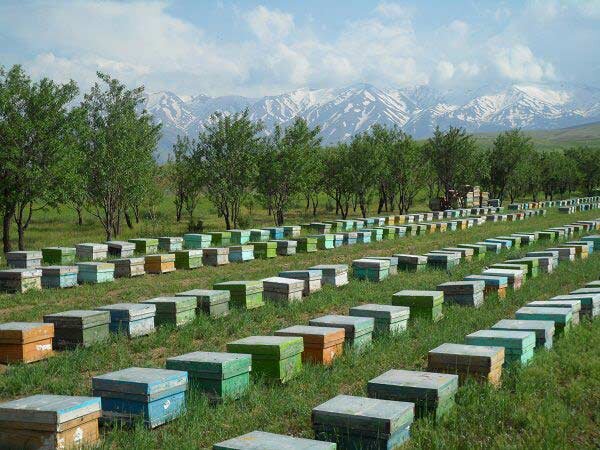Iranian startup designs smart beehive

The beehive is made using Internet of Things (IoT) technology, which can be used by beekeepers and at honey bee farms.
The startup team is headed by Amin Rezaeizadeh and Mehdi Shahrdad.
“We use modern technology in order to promote professional beekeeping as well as support personal and urban beekeepers,” Shahrdad told ISNA.
The smart beehive is equipped with an application, which can be installed on cellphones to inform users about the latest situation of the beehive, he explained.
Users who have a limited number of beehives and do not have much knowledge about beekeeping can protect their hives using the software, he said.
“Some countries like the U.S., Australia and Slovenia have already conducted some activities in the field of smart beekeeping, however the issue is proposed for the first time in Iran.”
Information about weight, temperature and humidity are analyzed and the beekeeper is informed via an application on the cellphone and via a microphone installed on the beehive, the presence of queen bee, fertilization and burglary are registered
A software is designed based on the IoT in order to transfer information from beehives to beekeepers, Rezaeizadeh explained.
He said that a demonstration beehive provides a connection between the server and the cellphone and collects data via sensors in the beehives.
Most of the times, the beehives are located in the places which are not easily accessible. Smart beehives not only transmit data to beekeepers but also can act as a thief-catcher, he explained.
“Generally, beekeepers keep a record of their activities and beehive status in notebooks, however the smart beehive is equipped with a QR code, through which they can easily register and analyze data like weather forecast and keep track of nectar flow, when it is starts and ends,” he added.
Increasing efficiency by smart beehives
Using information provided by smart beehives and analysis for good reaction, the efficiency of beehives increased, Shahrdad said.
Information about weight, temperature and humidity are analyzed and the beekeeper is informed via an application on the cellphone, he added.
Via a microphone installed on the beehive, the presence of queen bee, fertilization and burglary are registered by analyzing the voices, he noted.
“An eight-member team has worked for a year on automation and signal processing in order to develop the technology for beehives. The product is now in startup phase and will enter into commercialization phase through attracting investors.”
According to the Bee Care website, the smart hives allow beekeepers to stay connected with their hives and rapidly respond to any needs detected. Digital sensors underneath the hives provide timelines about what is happening inside and alert beekeepers when there are changes that may impact the hive.
















